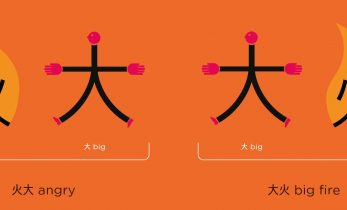Greater than 4 minutes, my friend!
How Diversification Helped Me To Find My Voice And Why It’s Not Just For Bad Translators
Diversification can sometimes have a bad name in the translation industry. Some believe that only bad translators, or people who are not serious about translation, choose to diversify and offer other products or services. The aim of this article is to share my personal experience with you and to show you how diversification transformed me and helped me to find my voice.
I decided I wanted to become a translator at the age of 17. I was passionate about languages and I loved learning about other cultures. So I applied for a place at the Institut de Perfectionnement en Langues Vivantes (IPLV) in Angers, France, to study for a degree and then a post-graduate diploma in translation.
During my third year at university, was sent to Anglia Ruskin University in Cambridge, UK, as part of the Erasmus student-exchange programme. I instantly fell in love with the city, its historic buildings and its green open spaces. One day, whilst admiring the rowers speeding past the narrowboats on the river Cam, I shared my dream with a friend: I told him I wanted to become a freelance translator in Cambridge.
Fast forward a few years, and after two in-house positions in the UK I finally set up business as in English-to-French freelance translator in the city of my choice. I sent hundreds of CVs to translation agencies and thanks to my diploma and my in-house experience, projects started to come in pretty quickly.
Translation agencies sent me work on a daily basis and I often had to turn jobs down. I focused solely on doing what I loved doing (translating), and since my clients remained loyal I didn’t need to spend time on prospecting or marketing activities. This is often referred to as an “employee mindset”, as opposed to a “business owner mindset”.
Although I was operating within a somewhat narrow comfort zone, depending on others to liaise with end clients and allowing them to take a share of the money, this arrangement suited me for about ten years. My dream wasn’t to become a business owner after all, my dream was to work as a freelance translator in Cambridge, and I had made it come true.
Then one day, something changed. I started to lose my drive; my enthusiasm waned. I attributed this change to something a lot of freelance translators experience at some point in their careers: isolation. I later realised that my situation had probably been caused by a lack of challenges. Challenges help us to remain motivated. They help us to stretch ourselves and grow. Limiting myself to my comfort zone had thwarted that growth.
It was around that time that one of my biggest clients asked me to switch to machine translation post-editing (PEMT). I refused to do so and consequently lost that client. A couple more clients enquired about PEMT and I panicked. I imagined that I would be replaced by machines within five years – I realise now that there was no need to panic, although I do believe that the translation industry is about to undergo significant changes and that we need to prepare.
Thinking that my career in translation would soon be over, I turned to my second passion in life: coaching. I had been considering training as a coach for several years already but had never taken the leap. This time I decided to take that leap and to enrol on a coaching course to get new qualifications.
My training taught me a lot about goals, about challenges and about the importance of stretching oneself. I learnt techniques to overcome mental blocks, to brainstorm ideas and to get organised and motivated. And most importantly, I learnt about change and change management. Realising that all these techniques would be very useful to translators, I set out to adapt them for our industry and started a blog: Coaching For Translators.
I was soon invited to give talks at conferences and networking events. This was something completely new for me, something well outside my comfort zone. After all those years translating other people’s words, I was being asked to speak and share my own ideas. I realised how stimulating challenges could be and how lucky I was, as a freelancer, to be able to shape my career the way I wanted.
As well as coaching translators privately on Skype, I developed an online course entitled The Future-Proof Translator. The aim of this course is to raise awareness about change in our industry, and to share change management techniques that will help translators to future-proof themselves, whichever career path they choose.
On Saturday, April 16th, I will be giving my 5th talk in just six months at the bp16 translation conference in Prague. Not only am I expecting my largest audience so far, but my presentation (Translation in Transition) will be streamed live over the Internet and recorded for future viewing.
Not so long ago, I would have had nightmares about this, but I have learnt the benefits of stepping outside of one’s comfort zone, of being visible and expressing oneself, and of embracing challenges as stepping stones on the path to personal and professional development.
I’m looking forward to sharing new ideas with fellow translators in Prague, and to mark the occasion I’m offering a 25% discount on all my Future-Proof Translator webinars until Tuesday, April 19th. To take advantage of this offer, please visit my online shop and enter discount code bp16fpt at checkout.
I hope the techniques I share in this course will help you to shape your own career, whether you choose to diversify, to look for direct clients, to work with machine translation or to do something completely different. The beauty of freelancing is that it gives us the flexibility to adapt to new circumstances and grow. It gives us the freedom to transform and reinvent ourselves whenever we need or wish to. I feel very privileged to have that freedom.





Congrats on publishing your first Open Mic story, Christelle! That must be very exciting! 🙂
I can totally relate to the part where you’re talking about employee mindset. I think this is something that holds us back and doesn’t allow us to grow and prosper. I applaud your bravery on moving forward with your coaching idea, I’m sure it wasn’t an easy decision for you.
Do you feel like coaching is going to replace translation for you or do you still work as a translator and coaching is more of a side business rather than a full time business venture? I wonder what your colleagues think about this type of business? Any criticism?
Thank you Dmitry!
It took me several years to commit to training as a professional coach and to launching a coaching business. It was a big financial investment (we’re talking about a 5-digit pound sterling figure here). I’m passionate about it, and I strongly believe that it can help translators to become more successful. My challenge is now to convince more and more people of the value of coaching and of what it can offer.
I had to take a lot of time off translation to develop my online course (The Future-Proof Translator) and to promote my new business. These things take time and effort. In the future, I would like coaching to be my main source of income because I believe I can make a difference as a coach, and I really enjoy it.
My colleagues are being very supportive and I’m very grateful for that. They can see how passionate I am. I also received very good feedback after my session at the bp16 conference in Prague last week. People saw how much thought I had put into it. I’d really like to do more public speaking too. It’s a great way to share ideas, get feedback and connect with others.